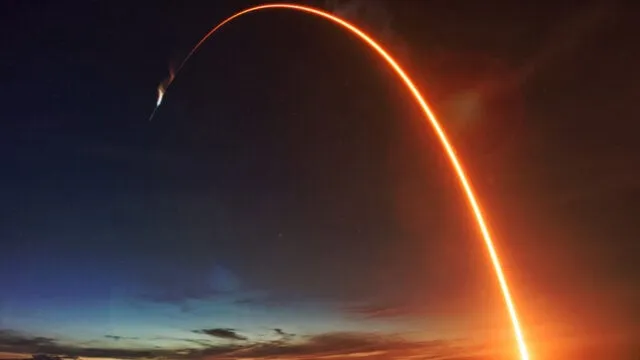Introduction
As the landscape of aerospace and defense continues to evolve, competition among key players is heating up, particularly in the realm of hypersonic technology. Rocket Lab, an emerging force in the aerospace industry, is making headlines as it jumps onto two notable hypersonic testing contracts. Positioned against giants like SpaceX, the company aims to solidify its place in a rapidly growing sector, driven by multiple multi-billion dollar contracts with the U.S. Space Force and the U.K. defense sector.
The Rise of Hypersonic Technology
Hypersonic technology is defined as travel at speeds exceeding Mach 5, or five times the speed of sound. This capability has become increasingly significant for military applications, as it enhances the ability to conduct swift maneuvers, evade detection, and bolster national security. In recent years, the development of hypersonic vehicles has captured the attention of the military, igniting a race among various firms to deliver cutting-edge solutions.
Rocket Lab’s Strategic Integration
Rocket Lab’s entry into hypersonic testing marks a significant shift in the company’s trajectory. Traditionally known for its small satellite launch capabilities, its partnership with the U.S. Space Force opens new avenues for growth and innovation. This positioning not only caters to the immediate needs of the defense sector but also showcases Rocket Lab’s adaptability in a highly competitive environment.
By leveraging advanced technologies, including their proprietary Electron rocket and Photon satellite platform, Rocket Lab aims to create sophisticated hypersonic systems. The recent contract awards reaffirm the confidence the U.S. and U.K. governments place in the company’s technical capabilities and innovative mindset.
Understanding the Defense Contracts
Importance of the Hypersonic Testing Contracts
Rocket Lab secured two hypersonic testing contracts which are crucial for the advancement of the HASTE (Hypersonic Advanced Technology Experiment) program. These contracts are designed to develop and test technologies needed for robust hypersonic systems. The implications of these contracts extend beyond the immediate financial benefits; they highlight the critical demand for innovation in defense technologies.
The significance of these contracts cannot be overstated. The Department of Defense has publicized a keen interest in accelerating hypersonic technology capabilities to ensure national security. Consequently, companies like Rocket Lab, armed with federal contracts, can channel resources toward research and development, potentially paving the way for groundbreaking advancements in the field.
Financial Implications and Revenue Prospects
Financial projections regarding how much Rocket Lab stands to gain from the Space Force remain somewhat ambiguous. Estimates suggest potential revenues could reach upwards of several hundred million dollars over the contract durations, dependent on the successful execution of project deliverables. Given the magnitude of the hypersonic program’s strategic importance, there may be opportunities for additional funding as Rocket Lab proves its technological prowess.
Competition with SpaceX and Other Industry Titans
In the fast-paced world of aerospace, Rocket Lab is not the only player vying for defense contracts. SpaceX, with its formidable launch capabilities and cutting-edge technology, is an omnipresent competitor. As both companies navigate the intricacies of military contracts, Rocket Lab’s unique offerings in lightweight launch vehicles could offer a competitive edge in specific project requirements.
However, competing with SpaceX will require not only top-notch technologies but also strategic partnerships. NASA, traditional defense contractors, and private sector collaborations will be vital for Rocket Lab to bolster its position in this competitive landscape. Leveraging these relationships while pursuing hypersonic initiatives can enhance the potential for long-term success.
Government’s Vision for Hypersonic Advancement
The U.S. government, through the Department of Defense, has outlined an ambitious agenda to lead the world in hypersonic technology development. Initiatives, such as the hypersonic flight tests of various platforms, aim to demonstrate capabilities essential for maintaining a technological advantage over potential adversaries. This focus allows companies like Rocket Lab to partake in projects that shape the future of warfare and defense strategy.
Moreover, Rocket Lab’s agreement with the U.K. highlights a commitment to international collaboration in this realm. Joint initiatives can foster shared knowledge and develop innovative solutions faster than any single country could achieve alone. Cooperation in hypersonic technology is becoming increasingly critical in the context of rising global security concerns.
Potential Challenges Ahead
While Rocket Lab’s contracts mark a significant milestone, challenges remain on the path forward. The complexities of delivering advanced hypersonic technology involve considerable R&D investment and an understanding of intricate regulatory frameworks governing defense contracts. Furthermore, competition from other aerospace companies with strong defense portfolios presents additional hurdles.
Additionally, the timeline for development and successful deployment of hypersonic technologies could span several years. As such, Rocket Lab will have to manage investor expectations and maintain a steady flow of communication with stakeholders about progress and financial viability.
Conclusion: Rocket Lab’s Step into the Future
Rocket Lab’s recent contracts in hypersonic testing represent a turning point not only for the company but also for the aerospace industry. As governmental spending in defense sectors continues to emphasize technological advancements, companies with the ability to innovate will stand at the forefront of the next era of aerospace.
By focusing on hypersonic technologies, Rocket Lab cultivates its position as a significant contributor to national defense strategies. The financial benefits of these contracts, along with the company’s incursion into this critical field, suggest that Rocket Lab is poised for substantial growth in the years to come. As it embarks on this new chapter, the industry will be watching closely to see how Rocket Lab navigates challenges and seizes opportunities in this compelling field of hypersonics.







